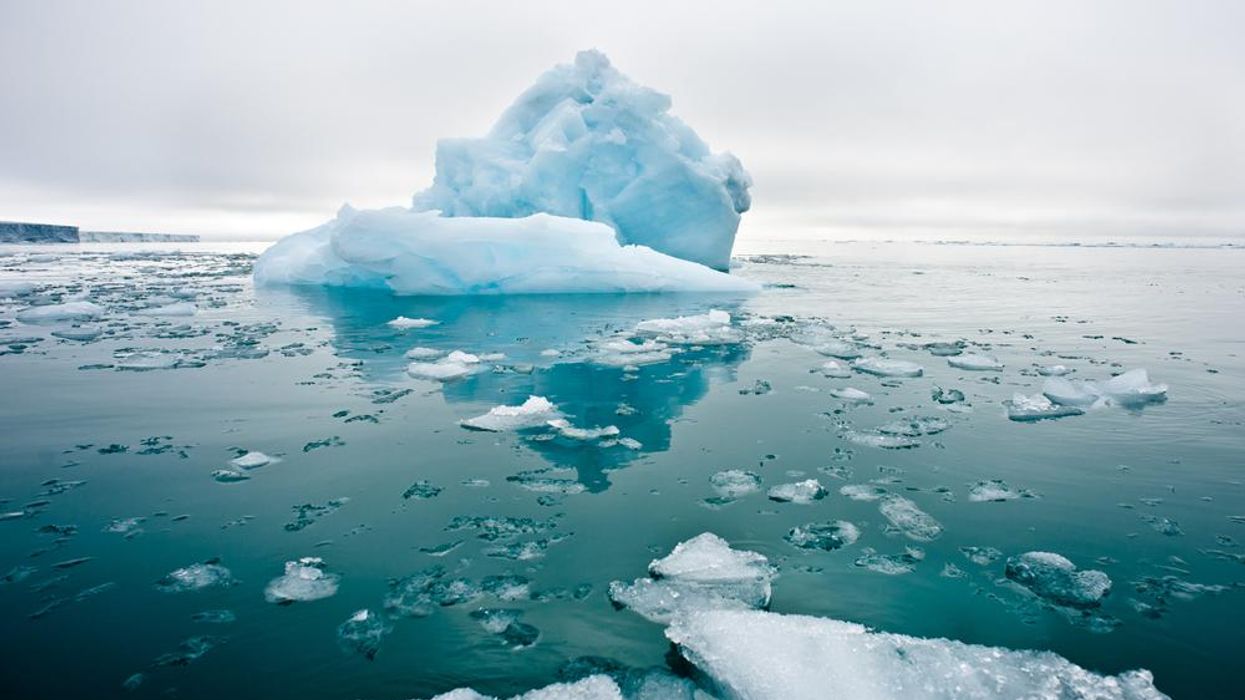A new study on Greenland and Antarctica's glaciers revealed that even if key climate change goals are met, half of global ice will melt by the end of the century.
For all 194 nations that ratified it, the 2015 Paris Climate Accords set a limit on emissions allowed by countries yearly. The United Nations agreement aimed to keep global temperatures from rising above 1.5 degrees Celsius.
Since then, the world is "nowhere near" its target. By the end of the century, the United Nations estimated that temperatures will rise to 4.5 degrees Fahrenheit above the pre-industrial average, a full degree higher than the goal set by the Paris Agreement.
But even if the world adhered to the 1.5 degree Celsius limit, a new study published Thursday in journal Science found that 104,000 out of roughly 215,000 mountain glaciers and arctic ice in the world will still melt by the end of the century.
David Rounce, the study’s lead author and a researcher at Carnegie Mellon University and the University of Alaska, told The Washington Post that rising sea levels are unavoidable in the years to come.
“Any reduction in the temperature increase will have a substantial impact on sea level rise and the loss of glaciers globally," he said.
Global ice has been steadily reducing since the peak of the last ice age 20,000 years ago. Greenland and Antarctica have the largest amounts of ice, with the study reporting that arctic ice is capable of persisting throughout rising temperatures.
However, icecap mountains across Europe and the United States are also in danger of melting. Landmarks with glacial ice such as the Alps in Europe, the PeruvianAndes, and the peaks of New Zealand’s South Island could see an influx of water into surrounding areas. In Alaska, glaciers are one of the largest contributors to rising sea levels.
“Roughly 80 percent of the world’s glaciers are less than 1 square kilometer,” Rounce added. “They are very small in terms of area, so when you think about future changes in a warming climate they are very challenged in order to survive.”
Though Mathieu Morlighem, a Dartmouth College glaciologist, believes the study shouldn't be perceived as harrowing. If anything, he says it gives humanity potential.
“The good news is that our decisions and actions today will have an impact on ice loss and on sea level rise,” Morlighem explained. "Reducing carbon emissions to achieve the Paris agreement is particularly important as the contribution from glaciers to sea level increases sharply beyond this point. It would also give people and ecosystems more room to adapt.”
- New Netflix Documentary 'Immigration Nation' Explores ICE And Immigration Policing ›
- Climate Change Is Dramatically Transforming the Arctic ›
- These Glaciers Might Disappear Within the Next 30 years ›
- Great Salt Lake Will Disappear in 5 Years, Scientists say - Advocate Channel ›
- Polar Bear Attacks May Be Linked to Climate Change, Experts Say - Advocate Channel ›
- Melting Glaciers Are the Next Major Consequence of Climate Change | AdvocateChannel.com ›
- Iceberg the Size of London Breaks Off Antarctica ›



















































